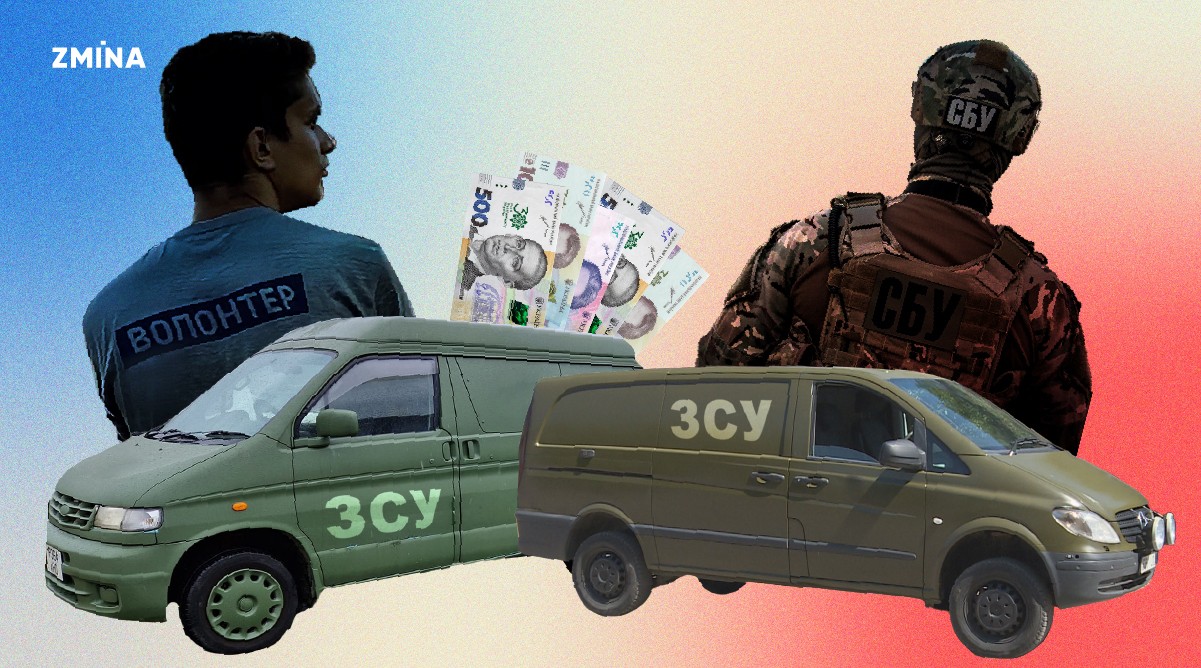
Volunteer and his colleagues are suspected of corruption
Since the first days of Russia's full-scale invasion of Ukraine, volunteers and social activists actively helped the army in the fight against the Russian enemy. In particular, they supplied the army with all the necessary technical equipment, clothing, cars, etc., writes zmina.
In order to simplify the procedure for importing such goods from abroad, in March 2022, the government adopted Decree 174, which, in particular, allowed the import of goods for the military on a declarative basis and classified them as humanitarian aid. In March, people's deputies adopted the relevant law, which supplemented the Criminal Code of Ukraine with Article 201-2 on “illegal use for profit of humanitarian aid, charitable donations or gratuitous aid.” And a few days later, this article became a tool for law enforcement to persecute volunteers, searches and other investigative actions began on them.
In this article, we describe the most revealing cases when volunteers suffered from provocations by law enforcement officers, and explain what is wrong with the new legislation and its application.
How volunteers fall into the trap of “provocation to commit a crime”</h2
During the spring, summer and autumn, law enforcement agencies actively conducted searches at various volunteers, citing suspicion of selling cars intended for the Armed Forces of Ukraine and other assistance to the military. In most cases, the investigators chose to prosecute volunteers who regularly import cars and other things to Ukraine as humanitarian aid for the military. Volunteers buy all this abroad at their own expense or with donations from people, and in Ukraine they transfer it to the relevant units of the Armed Forces of Ukraine or specific military.
“In the spring, the question was “to be or not to be” for the Ukrainian state. This required the maximum simplification of procedures at customs to provide for the troops. However, despite the obvious benefit of simplifying the import of goods for the military by the Cabinet of Ministers 174, the recognition of these goods as humanitarian aid is contrary to the law “On Humanitarian Aid”. After all, the law contains clear criteria for recognizing goods as humanitarian aid, and goods for the military purchased at the expense of volunteers and donors are not. So Article 201-2 of the Criminal Code cannot be applied to goods purchased in this way. However, law enforcement officers began to use the fact that volunteers, in accordance with Decree 174, declare cars and other goods for the military as humanitarian aid as a formal reason for criminal prosecution,” said Daniil Popkov, legal adviser of the ZMINA Human Rights Center.
However, law enforcement officers immediately began looking for those who make money selling humanitarian aid, among well-known volunteers who have been doing charity work in public, some since 2014 and are well known for their activities in society. That is, among those who never hid. Moreover, when investigating and using covert investigative actions, law enforcement officers used the method of provoking a crime prohibited by law.
So, a volunteer provocateur came, who stated that he was a law enforcement officer, and claimed that his acquaintances in the military, who were already on their way to the front, urgently needed cars. The volunteer empathized and agreed to sell the car to the provocateur. The latter bought cars for the amount of funds for which the volunteer bought them. But at the moment of transferring the money, the volunteer was detained for “selling humanitarian aid.” After that, law enforcement officers reported on another successful operation to “expose a scheme for selling humanitarian aid by so-called volunteers or a criminal group.”
The existence of such a scheme and a provocation for a crime is also confirmed by the chairman of the subcommittee on local taxes and fees of the Verkhovna Rada Committee on issues of finance, tax and customs policy Marian Zablotsky. People's Deputy considers cases against volunteers, where they are accused of selling humanitarian aid, unfounded.
“I studied a lot of volunteer cases, and none of them has any basis. In my opinion, law enforcement officers behaved as disgustingly as one could imagine,” the people's deputy noted.
At the same time, the method of “provoking a crime” is contrary to the norms of the Criminal Procedure Code of Ukraine and the Convention for the Protection of Human Rights and Fundamental Freedoms (European Convention on Human Rights). After all, when preparing and monitoring the commission of a crime, law enforcement officers are prohibited from provoking and inciting a person with the aim of further exposure, to influence his behavior by violence, threats or blackmail.
According to the legal adviser of the ZMINA Human Rights Center Daniil Popkov, it is not allowed incite a person to commit a crime, given that without such so-called “assistance” of law enforcement officers, he would not have committed these actions.
“Ukrainian legislation and the practice of the ECtHR prohibit law enforcement officers from any manifestation of pushing a person to commit a crime, repeated proposals to commit a crime, persistent reminders and requests, offers to pay more for a certain product, etc. The initiative and an active desire to commit an action for which criminal liability is provided, should be shown by the suspect, and not by law enforcement officers, ”explains Daniil Popkov.
According to the Code of Criminal Procedure and the European Convention on Human Rights, evidence obtained in this way cannot be used in criminal proceedings. This method is prohibited, because due to incitement, persuasion and other ways of inciting a person to commit a crime, the boundaries between law enforcement officers and criminals are blurred. The ECHR and criminal law are based on the principle that criminal methods cannot be used to fight crime.
However, now a provocation to commit a crime is often used by law enforcement officers, in particular representatives of the police, the SBU, the BEB, in order to allegedly take unvirtuous volunteers red-handed.
“Knowing that volunteers are ready to do anything to help the military, law enforcement officers use for his agents an emotional legend that supposedly cars are urgently needed for the military, who are dying at the front right now due to their absence. The use of mercy even during the war by law enforcement officers is not only illegal, but also vile and immoral,” Daniil Popkov believes.
Thus, according to the Office of the Prosecutor General, from January to November of this year, 427 criminal offenses for the sale of humanitarian aid were registered.
Below we publish a description of five high-profile cases against volunteers investigated by law enforcement officers for allegedly selling humanitarian aid, which was provided for the army .
The case of linguist and volunteer Svyatoslav Litinsky
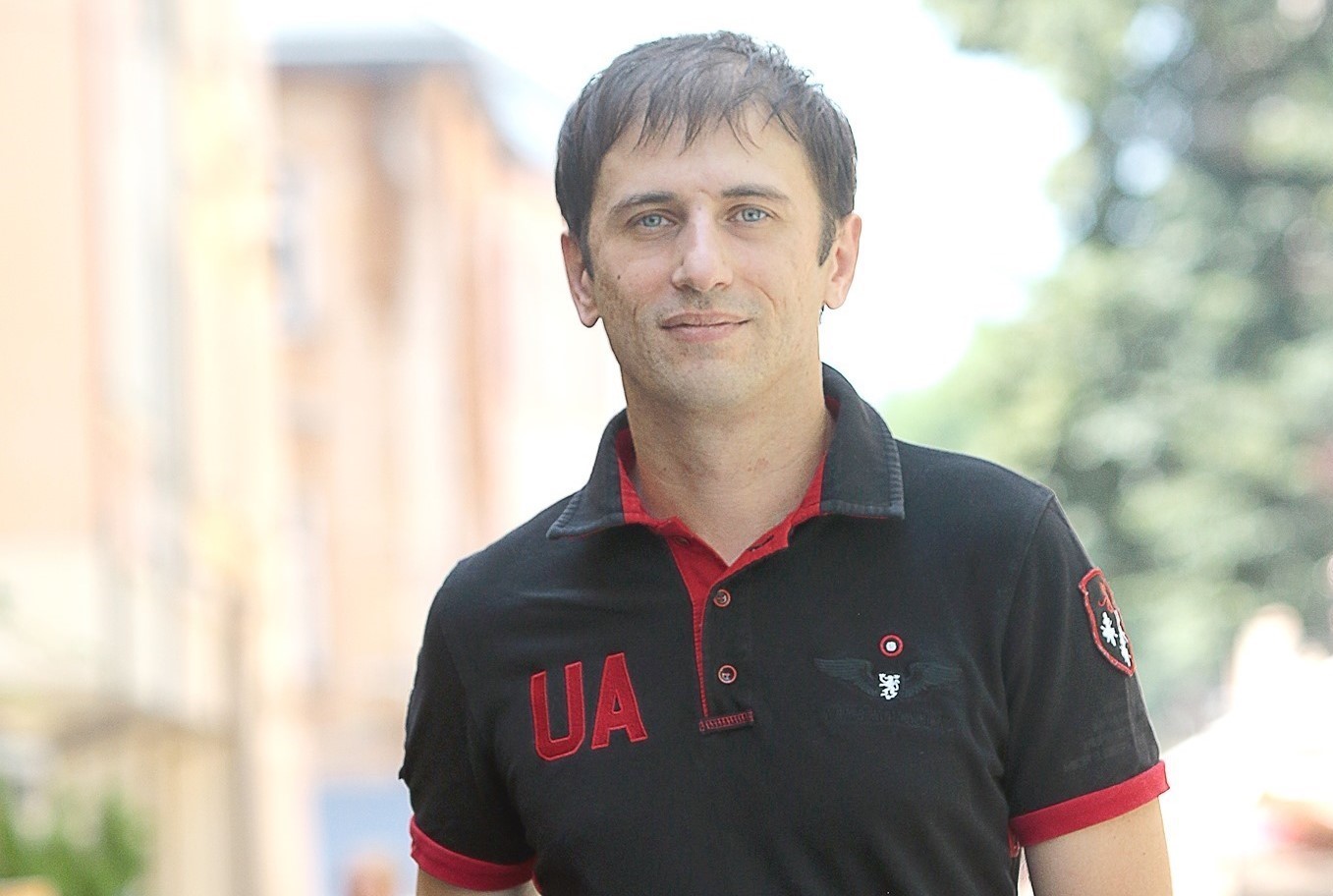
Svyatoslav Litinsky
Svyatoslav Litinsky is a linguist, social activist, and volunteer. Known for suing large companies for speaking Ukrainian with clients. He was one of the candidates for the position of the language ombudsman in 2020. Sued for a passport without duplication in Russian and keyboard markings in Ukrainian.
Since the beginning of the full-scale invasion, Svyatoslav Litinsky, together with a team of volunteers, has donated more than 250 vehicles to the needs of the Armed Forces of Ukraine. The volunteer reported on the purchase and transfer of a car to the army in social networks.
Law enforcement officers became interested in volunteer activities and Litinsky's activity. On September 8, investigators from Kyiv searched his house and that of another Lviv volunteer, Nazariy Ostrovsky, as part of the alleged sale of humanitarian aid. Both volunteers were abroad at that moment. According to Ostrovsky, they went to buy another car for the Ukrainian military. The search at Litinsky's place took place in the presence of his wife and two children, aged 8 and 10.
According to volunteer Nazariy Ostrovsky, law enforcement officers searched the unfinished house of his family near Lviv, as well as the house that he inherited. Nothing was seized during the search. According to Ostrovsky, the police told the builders through the doors that had come because of utility debts, but in fact they began a search. Volunteer Svyatoslav Litinsky also spoke about a similar situation in media comments. However, in his case, the investigation team told his relatives that they had brought him a summons.
“They actually entered the apartment by deception, because they said about the summons, but showed the decision of the Goloseevsky court of Kyiv on the search. A search is traumatic for both the wife and the children,” Litinsky explained in a commentary to Radio Liberty.
On September 10, the head of the National Police, Igor Klymenko, described this criminal proceedings on his Facebook page and posted a video in which a conversation was made public between alleged military men and men, in the names of Igor and Nazar, as well as a video of one person transferring money to another. As Klimenko noted, a military man, looking for a car for his brothers-in-arms, came across an announcement of a charity fund, however, as it turned out, it was necessary to pay 5,500 euros for two cars, while at the same time, it was impossible to mention the cost in the act of acceptance and transfer of a military unit – the sellers insisted write exclusively “Free humanitarian aid.”
Volunteer Svyatoslav Litinsky was summoned for questioning as a witness on September 12.
According to the police, this scheme of earning is used by two men who hide behind a number of charitable public organizations. Among them is the NGO “Nezavisimye” headed by Svyatoslav Litinsky. He is a witness in this criminal proceeding.
According to Klymenko, one of the defendants, providing documents from the NGO “Nezavisimye”, negotiated with philanthropists on the purchase of a car abroad for the needs of the military. When the cars reached the border with Ukraine, these people cleared them through other charitable foundations, indicating that these cars would be donated to the military units of the Armed Forces of Ukraine.
Litinsky himself explains that law enforcement officers suspect the man of selling a volunteer car, for which he himself raised money. So, in the court ruling it is written that an acquaintance of Svyatoslav Nazariy, who together with him is engaged in the delivery of cars, helped to smuggle a car for the chaplain. The chaplain, according to the volunteer, was in Kyiv during the hostilities, then went to the East. He has trust and authority among the military. Therefore, Nazariy helped to buy and import this car. The police have a suspicion that this chaplain was selling humanitarian aid. Although, in fact, the chaplain found the money for this car.
Svyatoslav Litinsky said that some people call the volunteer group every day with a request to sell a car:
“They call and ask us to sell humanitarian aid in Lviv. This is a special provocation similar to that of other volunteers. They say that they really need a car in Lviv. My answer is always that we do not sell cars, but we can help bring them from Poland and Germany, and there we will pay and help bring and repair them, but on condition that they are handed over to the army.”
On November 30, Litinsky said in a ZMINA comment that the situation has not developed in any way since then. He was summoned for interrogation as a witness, the invitation was given during the search, but he said that he was abroad and could not appear on the indicated day. He also added that, according to his information, chaplain Igor Plokhoy and Nazariy Ostrovsky were not extended the previously chosen precautionary measures – not to communicate, spend the night at home, and the like.
After the searches at Litinsky, human rights and volunteer organizations issued a joint statement, in which they expressed deep concern about such pressure on volunteers.
Case of volunteer Oles Dzyndra
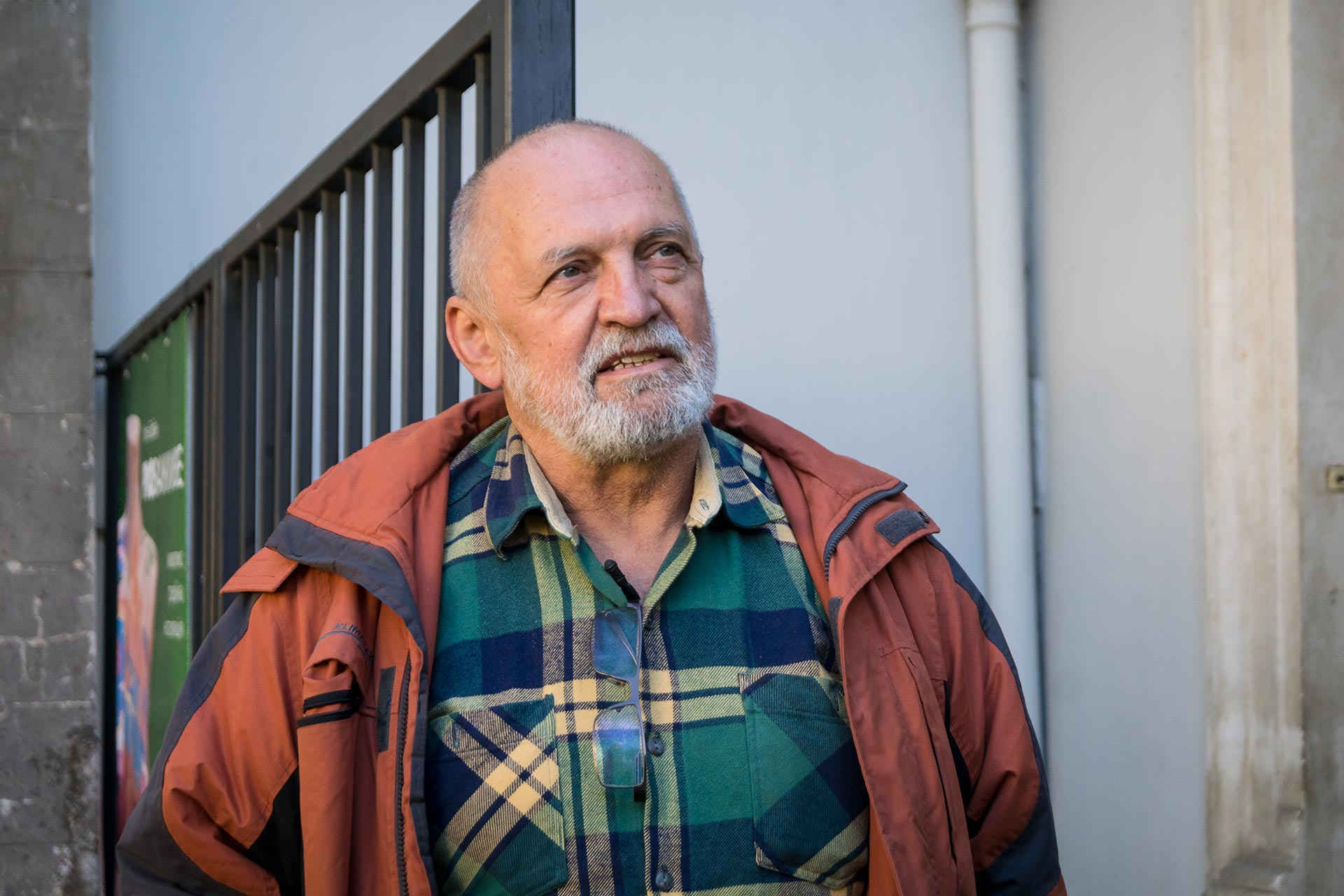
Case of volunteer Oles Dzyndra
Is also importing cars under the guise of humanitarian aid the famous Lviv artist Oles Dzindra is suspected.
On August 30, 2022, the trial of volunteers Oles Dzindra and Yuriy Muzychuk began in Lviv in connection with the sale of humanitarian aid. We are talking about the transfer of several cars to a third party – an employee of the Chervonograd Territorial Center for Recruitment and Social Support Sergey Sharko, allegedly for a reward.
In fact, as Oles Dzindra told ZMINA, we are talking about four cars that volunteers bought from Slovenia for specific military units. This was done at the request of the Ukrainian Volunteer Army and the 80th Airborne Assault Brigade, however, Sharko turned to them, allegedly finding information about the volunteers in the telegram channel, with the fact that the unit he supposedly cares for needed cars urgently and convinced them to give him . It was agreed that he would give money for these cars to the volunteers so that they would finally buy cars for the units they were promised.
On the day when the cars were supposed to be handed over to Sergei Sharko, he brought dummies of banknotes, and the volunteers were pointedly detained and suspected of selling humanitarian aid brought in by a charitable foundation.
As Dzindra explains, they really collaborated with the foundation, organized by friends of his son Andrey Dzyndr to make it easier to drive cars across the border, however, the cars were purchased not at the expense of the fund, but at their own expense or at the expense of the military themselves, who needed a car, and their families. . And the cars involved in the case, as Oles Dzindra notes, were purchased with their own money.
Today, the Lviv court released Oles Dzindra and Yury Muzychuk on personal bond.
The case of volunteer Oleg Yanitsky
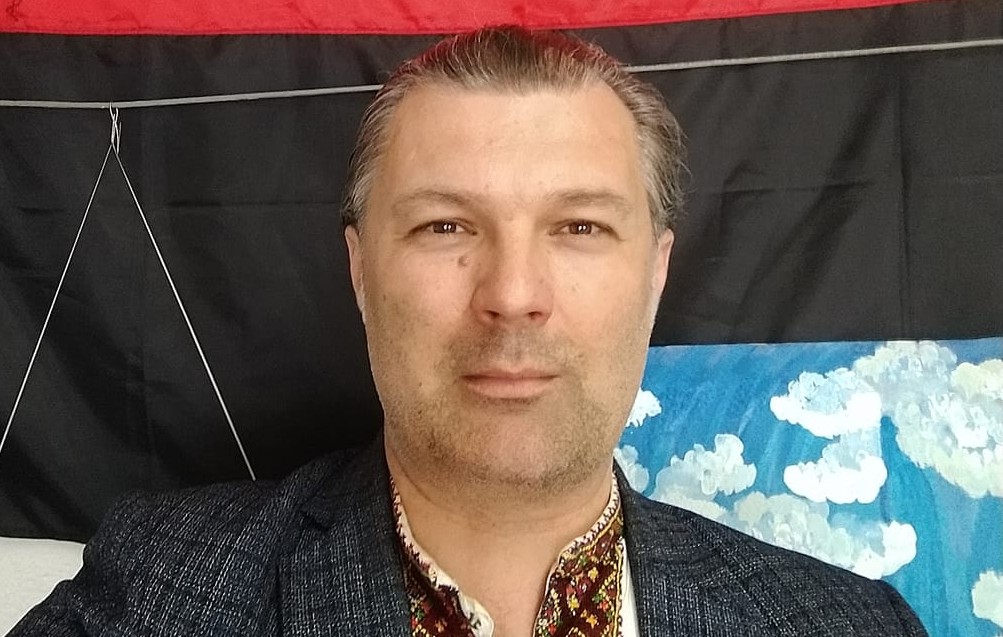
Case of Volunteer Oleg Yanitsky
On August 31, officers of the KORD special police unit conducted searches in the office of Lviv volunteer and businessman Oleg Yanitsky. The police, carrying out investigative actions by court order, seized all the humanitarian aid that the volunteers did not have time to send to the military. On the same evening, volunteer Oleg Yanitsky reported that they were trying to tie him to a criminal case that concerns another person.
“The search was carried out without my presence. When I arrived, I was handed a ruling on a criminal case against volunteer Bohdan Luschak, the founder of the International Charitable Foundation Medical Fund from another region. I saw him only a few times. I know that he drove cars, they had a free place, so he handed over targeted parcels. Mostly it was about families who fled to Europe and whose men fought and who sent parcels through this man. At the border, he declared this humanitarian aid and indicated my delivery address. So they came to this address, ”Yanitsky told ZMINA.
According to volunteer lawyer Irina Danilyuk, the search, which took place at the enterprise of Oleg Yanitsky, had significant procedural violations:
“The KORD special unit was involved in the search, which directly contradicts the legislation of Ukraine. Since the KORD special unit can be involved only if there are sufficient grounds to believe that there will be armed resistance. In addition, this search took place without the presence of Oleg Yanitsky. The investigators did not inform him about this. The search caused damage to the enterprise and moral damage to the employees themselves.”
In addition, the lawyer believes that the arguments of law enforcement officers about the connection between Oleg Yanitsky and those persons who were subsequently declared suspect are questionable.
p>“We were able to prove to the court and documented that all the seized property, and these are military equipment, clothes, backpacks, tactical medicine, equipment – everything that was seized during the search, there are few other donors than those that appeared in the criminal proceedings. The second is the property of a little clearly defined recipient of assistance in the Armed Forces of Ukraine. That is, we proved that this property should not fall into the hands of the defendants in criminal proceedings, but it had a clear purpose on the front line. This was confirmed by the commanders of the military units,” adds Irina Danilyuk.
The volunteer was involved in this case as a witness. According to him, no one in law enforcement agencies is interested in finding out what really happened. There is only one interest – to open a case and show the statistics to the management.
By a court decision dated September 14, the appeal of volunteer Oleg Yanitsky was partially satisfied: the arrest was removed from the turnstiles and other military equipment. And in early November, the court made another decision: to return personal belongings to the volunteer – a system unit, a computer, a phone and three notebooks. So far, this is the only case in which the court took the side of the volunteer and returned the confiscated property and humanitarian aid.
Case of Volunteer Sergei Tsybulsky
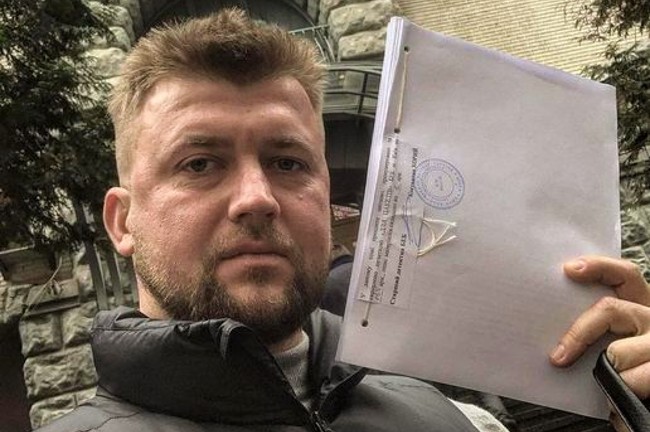
Sergey Tsybulsky
Since the beginning of the full-scale war, volunteer Sergei Tsybulsky has been importing cars from abroad, repairing them and handing them over to the fund, with which an agreement was concluded on the provision of technical services. Then the cars were sent to the front for the needs of the Ukrainian military.
However, on September 14, security forces came to his car dealership and seized seven cars and his personal belongings. The Bureau of Economic Security of Ukraine raised a suspicion to the volunteer that he illegally profits from the sale of cars imported into Ukraine as humanitarian aid.
For its part, the State Border Service on September 15 reported on its website that, together with the detectives of the Bureau of Economic Security, it exposed a scheme for the illegal sale of off-road vehicles in the Kyiv region. According to the report, the security forces confiscated seven cars worth UAH 1.5 million from the volunteer. Later, the message of the Bureau of Economic Security already indicated the amount of UAH 1.6 million.
As Tsybulsky told ZMINA, the security forces first charged him under two articles: article 212 (“Tax evasion on an especially large scale”) and article 201-2 (“Illegal use for profit of humanitarian aid, charitable donations or free of charge) “”) UCU. However, according to the volunteer, the first article was almost immediately dropped. In the second, since October 31, he became a suspect.
Pre-trial investigation in criminal proceedings is carried out by detectives of the Main Detective Unit of the Economic Security Bureau of Ukraine under the procedural leadership of prosecutors of the Office of the Prosecutor General.
Sergei Tsybulsky suggests that the detectives of the Economic Security Bureau do not have time to investigate major economic cases, and therefore they take on volunteers. However, he considers his position strong, because he sees obvious inaccuracies in the case, indicating that it was fabricated.
Firstly, there are two identical reports of the applicants, where it is written that we had them and saw such cars, which, I know for sure, we have never imported. That is, they write what is convenient for them. There are many questions in the case. This is absolute raiding and robbery,” explains Sergey Tsybulsky.
The case of volunteer Alexander Yakovenko and Monsters Corporation
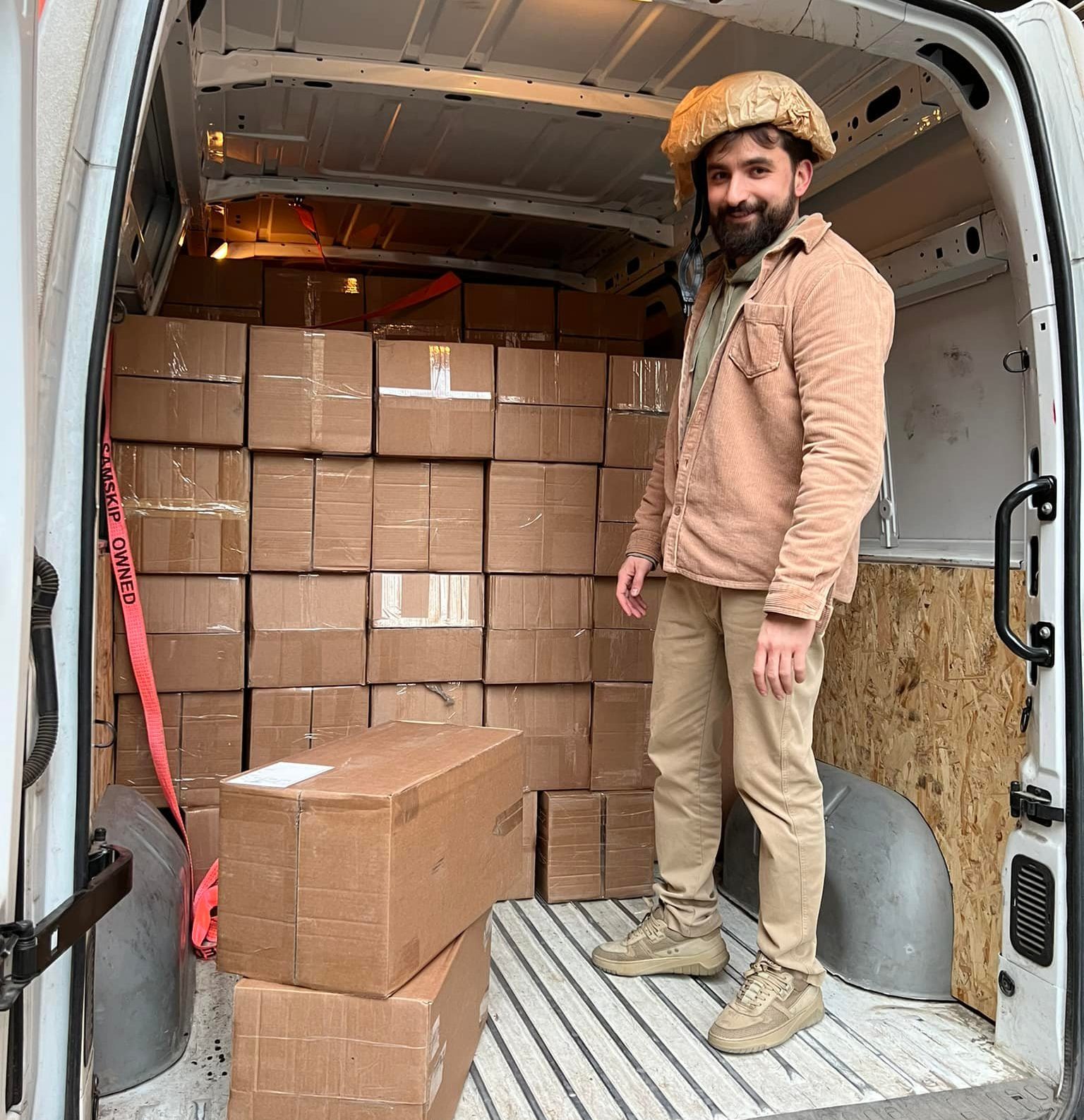
The Case of Volunteer Alexander Yakovenko and Monsters Inc
Entrepreneur Alexander Yakovenko helped the military from the first days of a full-scale war, in particular, he bought bulletproof vests, produced anti-tank hedgehogs, and collected bags for barricades. In general, according to Yakovenko, his companies donated about UAH 15–18 million for volunteering, while he personally gave about UAH 5–7 million.
On May 23 of this year, law enforcement officers opened criminal proceedings against the businessman, his employee Vladimir Kurnosov and Ekaterina Nozhevnikova, founder of the Odessa charitable foundation “Monsters Corporation”. profit.
According to the UP, local Odessa security officials wrote a report: there is information that Ekaterina Nozhevnikova, along with entrepreneur Alexander Yakovenko and other volunteers, as well as a representative of the military unit, “organized into a criminal group.” They allegedly set up an “effective mechanism” to receive humanitarian aid and use it for their own enrichment.
Now there is only one suspect in this case – Vladimir Kurnosov, an employee of Yakovenko's company, who helped transport humanitarian aid. He, according to the SBU, sold 19 plates for armor, a quadrocopter, a thermal imager and 58 first-aid kits from humanitarian aid. For two months now, the man has been under a preventive measure in the form of a million hryvnia bail.
The lawyer of entrepreneur Alexander Yakovenko, Alexander Nepomniachtchi, said in a commentary to ZMINA that the purchase from Vladimir Kurnosov was made in the amount of 10-11 thousand dollars. The buyer made three purchases of military equipment – a drone, a thermal imager, first aid kits, and plates for body armor. According to the lawyer, the drone belonged to Kurnosov and did not have a military purpose, the plates and the thermal imager were also bought by him at his own expense, and the first-aid kits were bought by a non-charitable organization and were imported as commercial cargo.
According to the lawyer, the provocation was carried out by a person who was repeatedly involved in such actions by law enforcement officers. This is 36-year-old Andrey Uskanov. Mobile applications that determine how people sign a particular phone number report the entry of “Andryukh Obep” (previously called the “department for combating economic crimes” in the structure of the Ministry of Internal Affairs).
Currently ended pre-trial investigation and familiarization with the case materials continues.
What's next?
After a wave of searches of volunteers, Oleg Yanitsky contacted colleagues from other regions to discuss issues of mutual assistance. After all, it became obvious that such cases against volunteers are systemic.
“We turned to the committees of the Verkhovna Rada, to the Temporary Investigative Commission, created at the request of the deputies who supported the volunteers. I have two main hypotheses why the persecution of volunteers began. First, somewhere “upstairs”, law enforcement officers had a question that there is an article that provides for control so that there is no theft of humanitarian aid, but there are no investigative actions and indicators. Therefore, law enforcement officers decided to “run” on the volunteers. The second version is that these searches were abandoned by the FSB. We think that there are moles in high offices. The main goal here would be for the volunteers to be less involved in helping, to be afraid, to help the soldiers less, and, accordingly, the combat effectiveness of the Armed Forces of Ukraine would fall,” says Oleg Yanitsky.
Volunteers themselves were also invited to the VSC meeting. They, according to Yanitsky, for their part told the deputies about the systemic persecution of cars and cases of body armor.
“This was the first most important meeting, at which the VSK finally received clear information about what was happening. Accordingly, we have good cooperation, since both the chairman of the VSK, people's deputy from the Servant of the People Serhiy Kozyr, and its members clearly stated that they have enough information to understand that this is systemic persecution, and law enforcement officers actually create a problem for countries, persecuting volunteers,” Yanitsky says.
According to the legal adviser of the ZMINA Human Rights Center Daniil Popkov, the proceedings against volunteers should be closed for many reasons:
“First of all, because in almost all cases, cars and goods were bought at the expense of the volunteers themselves or people who these funds were donated to them, not donors. This excludes the humanitarian nature of these goods in the understanding of the law “On Humanitarian Aid”.
In addition, in almost every case, one can talk about the lack of evidence of the fact of sales and the goals of profit-making by volunteers. On the contrary, volunteers invested additionally their own funds, in addition to those accumulated through public fundraisers. Therefore, according to the lawyer, the criminal prosecution of volunteers should be immediately stopped both on the grounds of violation of the law by law enforcement officers and the groundlessness of the charges, and taking into account the immorality and social harmfulness of these actions.
It should be added that criminal cases against volunteers harm their reputation and, as a result, reduce public confidence in the volunteer movement, which, finally, is reflected in the level of provision of the Armed Forces of Ukraine and the country's defense capability in general. On the other hand, due to fear of persecution, many volunteers and active citizens simply stop their activities or reduce their volumes. Consequently, the actions of law enforcement officers can be regarded not in the interests of society, but, on the contrary, to the detriment.
The ZMINA Human Rights Center transferred all these cases of volunteers to the Office of the Prosecutor General, so that they would be taken under special control and the actions of representatives law enforcement agencies.
translationSkelet.Info
DOSIER: Georgiy Tuka: Millionaire Volunteer Caught Dishonesty</p
Kruk, facade, state secret, Zhanna …
BusinessBusinessman spoke about the scandalous details of Mayman's “volunteer” activities
Theft of humanitarian aid: the head of the Zaporozhye prosecutor's office led the case to a dead end and lies that did not do this – people's deputy









